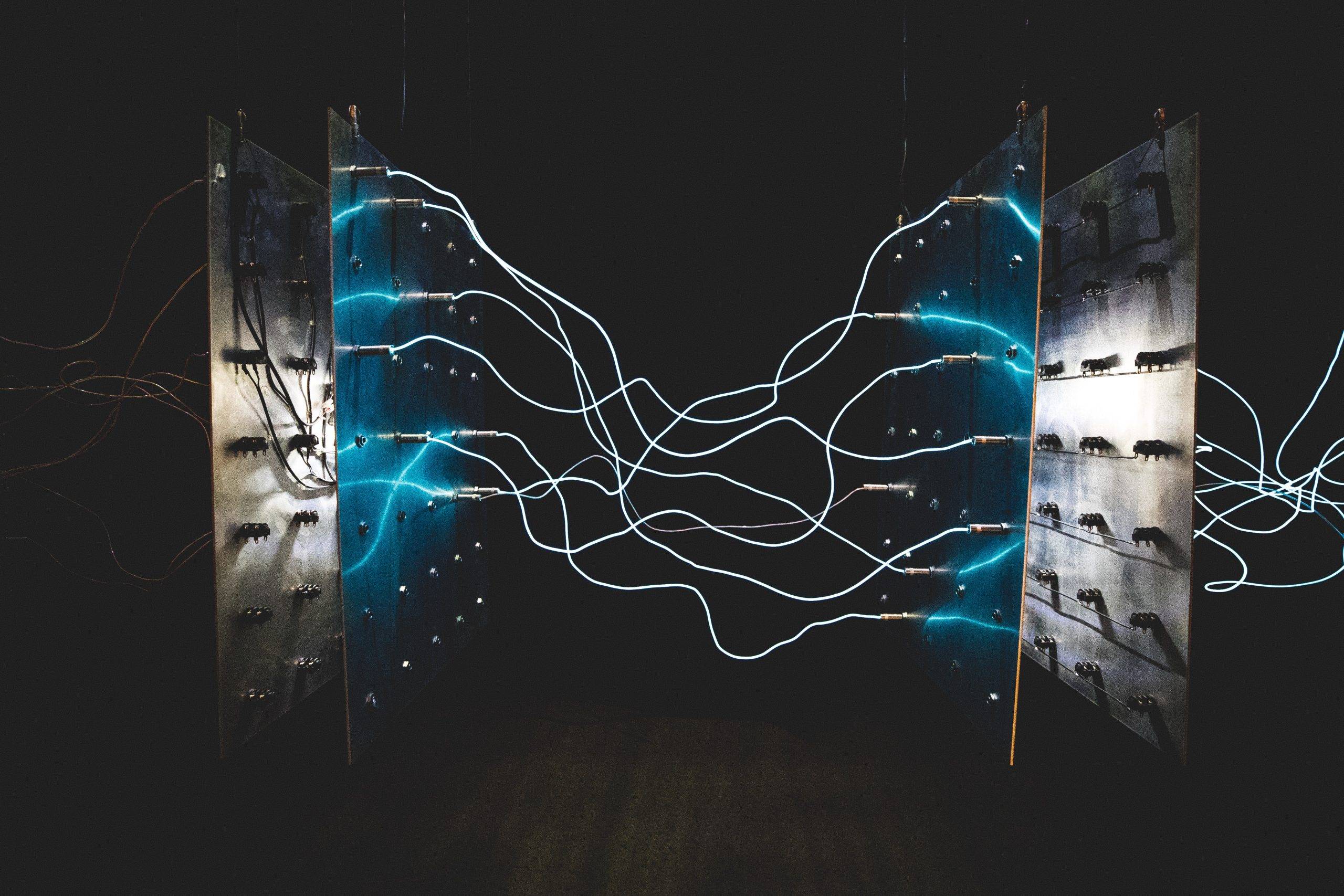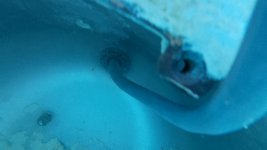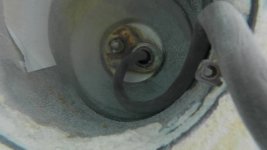2 gang GFCI outlets.Current GFCI breakers or 2 gang GFCI outlets?
Led 120 or 12v?
- Thread starter Fpppool
- Start date
You are using an out of date browser. It may not display this or other websites correctly.
You should upgrade or use an alternative browser.
You should upgrade or use an alternative browser.
- Jul 21, 2013
- 53,352
- Pool Size
- 35000
- Surface
- Plaster
- Chlorine
- Salt Water Generator
- SWG Type
- Pentair Intellichlor IC-60
2 gang GFCI outlets.
That should work if wired properly.
Ok, that is good to know. The 240 circuit feeds 2 pumps, the blower, the heater (110), and an old aqua rite chlorine generator that I already disconnected.Blower does not require a GFCI.
Pumps should have GFCI based on current NEC. Many older pools are grandfathered in from older NEC before GFCI requirement.
- Jul 21, 2013
- 53,352
- Pool Size
- 35000
- Surface
- Plaster
- Chlorine
- Salt Water Generator
- SWG Type
- Pentair Intellichlor IC-60
Ok, that is good to know. The 240 circuit feeds 2 pumps, the blower, the heater (110), and an old aqua rite chlorine generator that I already disconnected.
How many amps is that 240 circuit?
ferretbone
In The Industry
YEAH change that freaking fixture out it's completely f d... take another look down that fixure. Pull it, and replace it, then change the bulb to a j&j led. I'd use the amerilite gasket. The white one. If you use the red one that comes with the bulb J&J will warranty it. But it will only last a year or two then start leaking. Pull the fixture use the j&j bulb with the amerilite white gasket and you wont have to mess with that light again for 4 or five years.Hm... Wondering now if I should buy the Pentair Amerilite Incandescent and just replace the bulb for an LED. Anything I should take into consideration before replacing an incandescent bulb with LED using the incandescent housing?
Quick question, If 12 volt and 120 are the same as far as safty why would we need GFCIs on 120 around water but not 12 volt? Did I read something wrong? I'm only talking about the lights
Last edited:
The breaker is 30 AMPs. Not sure about the average and total consumptionHow many amps is that 240 circuit?
- Jul 21, 2013
- 53,352
- Pool Size
- 35000
- Surface
- Plaster
- Chlorine
- Salt Water Generator
- SWG Type
- Pentair Intellichlor IC-60
The breaker is 30 AMPs. Not sure about the average and total consumption
That circuit should not be loaded more then 24 amps.
You hould look at the motor data plates and equipment data plates and manuals and total up your max amps if everything is running.
- Jul 21, 2013
- 53,352
- Pool Size
- 35000
- Surface
- Plaster
- Chlorine
- Salt Water Generator
- SWG Type
- Pentair Intellichlor IC-60
Another unrelated/related question: I just noticed that none of my niches seem to be grounded. Pictures attached. What is your experience with this? Are niches usually grounded?
First of all are you confusing grounding with bonding?

Bonding vs Grounding
Electricity and water don't mix. Learn a few basic tips how to keep your family safe when dealing with electricity around your pool.
How old is your pool? Electical requirements for pools have evolved over the years and what the NEC requires now may not have been required at the time your pool was built.
I think I am. Meant bonded. The pool was built in 1997.First of all are you confusing grounding with bonding?

Bonding vs Grounding
Electricity and water don't mix. Learn a few basic tips how to keep your family safe when dealing with electricity around your pool.www.troublefreepool.com
How old is your pool? Electical requirements for pools have evolved over the years and what the NEC requires now may not have been required at the time your pool was built.
Are the niches usually easy to change or are they glued to the plaster?
- Jul 21, 2013
- 53,352
- Pool Size
- 35000
- Surface
- Plaster
- Chlorine
- Salt Water Generator
- SWG Type
- Pentair Intellichlor IC-60
Are the niches usually easy to change or are they glued to the plaster?
Niches are usually press fit into the concrete shell and held in place by the conduit in the back. Then the front of the niche may be plastered over. So the answer is, it depends on what was done with your pool.
Metal light niches are often used for the water bond. If your light niche is not bonded then what provides the water bond in your pool?
Pool electrical code requirements are described in the National Electric Code (NEC) section 680. The NFPA provides free access to the NEC and other codes.
Taking the Mystery Out of Equipotential Bonding Requirements for Swimming Pools is a good primer to understand equipotential bonding in pools.
A good reference is from Mike Holt Enterprises on Article 680—Swimming Pools, Spas, Hot Tubs, Fountains, and Similar Installations.
Also How to Verify That a Pool is Safe from Electric Shock – In Accordance with the National Electrical Code from Mike Holt.
Thanks! Ill review this and most likely will have someone checking this out. The only thing I know for sure is that the GFCI worked as expected since the spa light housing was filled with water.Niches are usually press fit into the concrete shell and held in place by the conduit in the back. Then the front of the niche may be plastered over. So the answer is, it depends on what was done with your pool.
Metal light niches are often used for the water bond. If your light niche is not bonded then what provides the water bond in your pool?
Pool electrical code requirements are described in the National Electric Code (NEC) section 680. The NFPA provides free access to the NEC and other codes.
Taking the Mystery Out of Equipotential Bonding Requirements for Swimming Pools is a good primer to understand equipotential bonding in pools.
A good reference is from Mike Holt Enterprises on Article 680—Swimming Pools, Spas, Hot Tubs, Fountains, and Similar Installations.
Also How to Verify That a Pool is Safe from Electric Shock – In Accordance with the National Electrical Code from Mike Holt.
Thanks again!
Last edited:
- Jul 21, 2013
- 53,352
- Pool Size
- 35000
- Surface
- Plaster
- Chlorine
- Salt Water Generator
- SWG Type
- Pentair Intellichlor IC-60
GFCI is a totally different safety system then bonding to protect against different faults.
Thread Status
Hello , This thread has been inactive for over 60 days. New postings here are unlikely to be seen or responded to by other members. For better visibility, consider Starting A New Thread.
Similar threads
- Replies
- 5
- Views
- 113
- Replies
- 3
- Views
- 75



